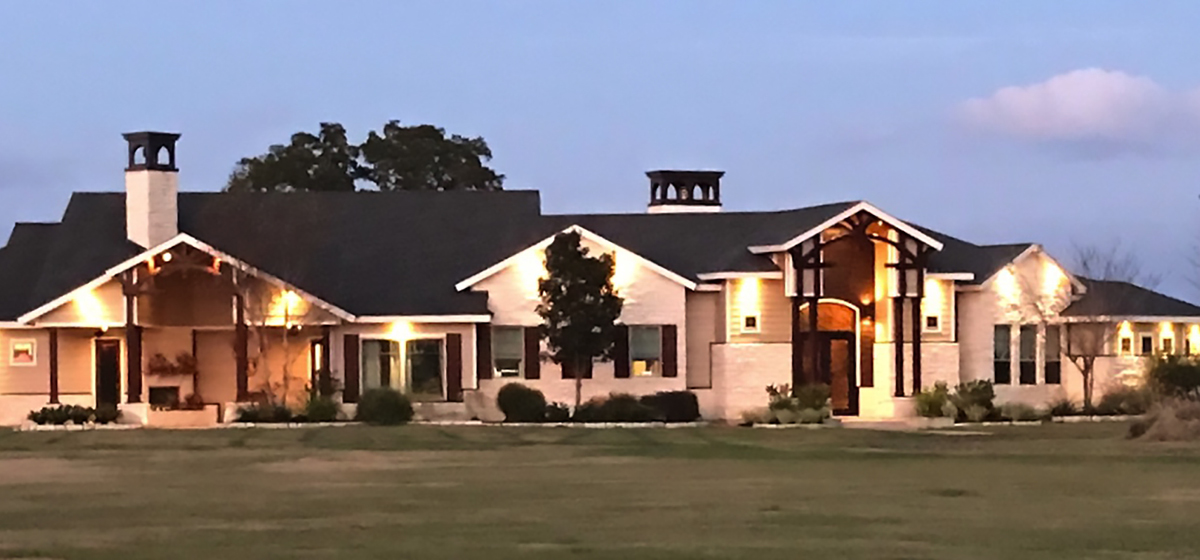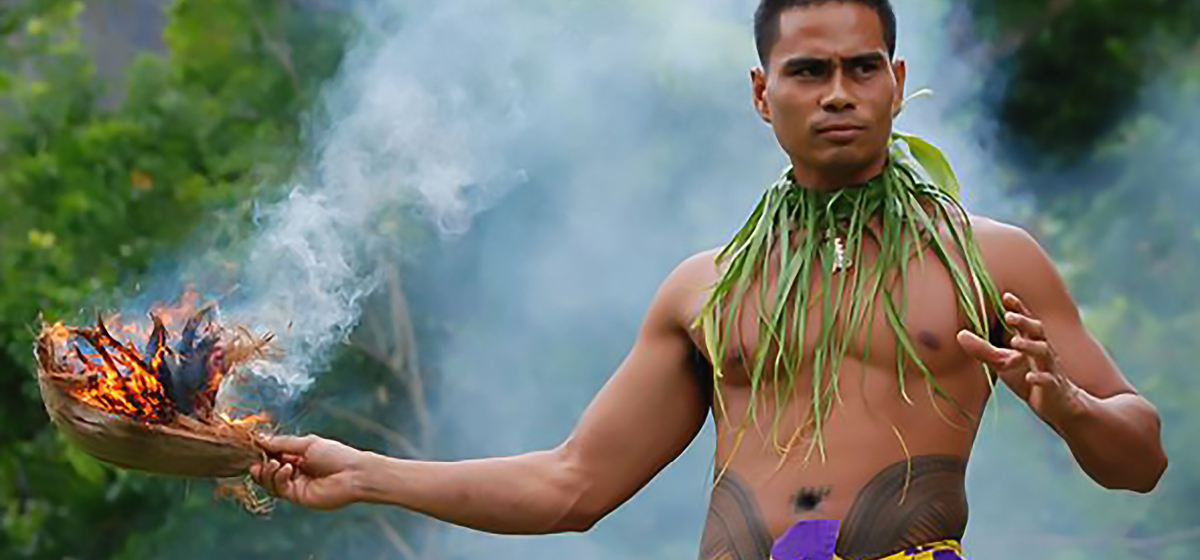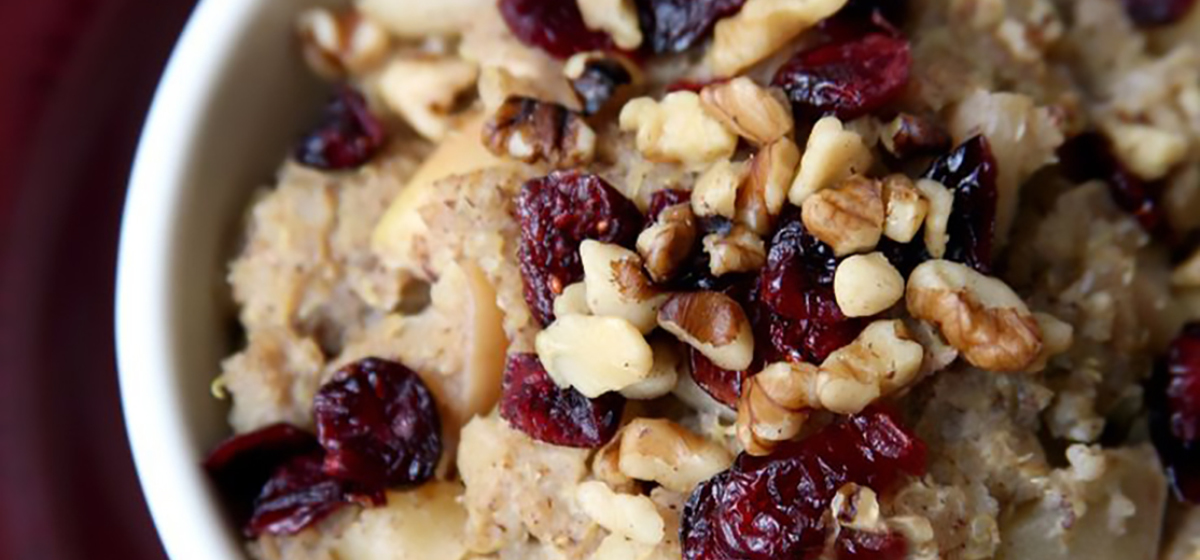Photos by Libby Rogers
 Meagan Dean has loved horses for as long as she can remember, and the challenges that come with raising and training them. She grew up riding and took to horses naturally. The ultimate challenge would come in 2004, when Meagan and her mother were in a car accident that left Meagan paraplegic—paralyzed from the waist down. Although she is now wheelchair bound, she took life by the reigns and pursued her passion for horses by starting her own business, Dean Quarter Horses, in 2011. Meagan has since acquired a small string of well bred, proven mares. She now breeds and raises quarter horses to be used for western pleasure and western all-around events. The story of Meagan Dean succeeding against all odds is one that will leave you inspired and believing life is what you make it. It’s 8:00 am as we sit on the back porch of Meagan’s custom-built horse barn that she designed. The entire facility has been altered to accommodate Meagan, so she can do all the duties her business entails by herself. From cleaning stalls to working horses and administering medicine, Meagan does it all by getting around on a 3-wheeled scooter that is soundless so as not to spook the horses. Meagan recently graduated from Sam Houston State University with a major in Animal Science and minor in Equine Science. It doesn’t take long to realize she is a woman with an amazing work ethic and knowledge of her field.
Meagan Dean has loved horses for as long as she can remember, and the challenges that come with raising and training them. She grew up riding and took to horses naturally. The ultimate challenge would come in 2004, when Meagan and her mother were in a car accident that left Meagan paraplegic—paralyzed from the waist down. Although she is now wheelchair bound, she took life by the reigns and pursued her passion for horses by starting her own business, Dean Quarter Horses, in 2011. Meagan has since acquired a small string of well bred, proven mares. She now breeds and raises quarter horses to be used for western pleasure and western all-around events. The story of Meagan Dean succeeding against all odds is one that will leave you inspired and believing life is what you make it. It’s 8:00 am as we sit on the back porch of Meagan’s custom-built horse barn that she designed. The entire facility has been altered to accommodate Meagan, so she can do all the duties her business entails by herself. From cleaning stalls to working horses and administering medicine, Meagan does it all by getting around on a 3-wheeled scooter that is soundless so as not to spook the horses. Meagan recently graduated from Sam Houston State University with a major in Animal Science and minor in Equine Science. It doesn’t take long to realize she is a woman with an amazing work ethic and knowledge of her field.
 How old are you, and how long have you been involved with horses?
How old are you, and how long have you been involved with horses?“I’m 26, and pretty much all my life. I started taking horseback lessons when I was eleven, and I started from the very basics. My mom and dad had me cleaning stalls, tacking up my horse. If I was going to take riding lessons, they were secretly hoping I would grow out of it, and that didn’t work. They figured out pretty quick that I’d rather clean a stall than clean my room, and that still holds true today! (laughing)
Whenever I was injured in 2004 in a car accident with my mom, I broke my back and had some pretty traumatic intestinal injuries. It took quite a while for me to come back, because I kept battling infections. After a year, I went back for some reconstructive surgeries and faced more infection, so that kept me tied up for about two years. There’s a lot to figure out when you’re injured like this.
 When did you decide this wasn’t going to stop you, and where did you start?
When did you decide this wasn’t going to stop you, and where did you start?When I was a junior in high school, I decided to show in 4-H, so I got myself a little mare. I decided I wanted to do halter and showmanship with her. We went to a county show and district show and did pretty well in those.
Yes, first ever experience showing. I didn’t picture myself in a wheelchair and using a scooter to show—so it was different. But I really did enjoy it. We bought a little mare, and I decided I wanted to pursue riding, so we got a special saddle with a higher back on it. We contacted a local trainer here in Madisonville, and she found us the perfect horse within a few days.”
 What kind of horse were you looking for?
What kind of horse were you looking for?Something gentle. (laughs) The horse’s movement really mimics the motion of a person walking, so it’s very therapeutic for people like myself who are paraplegic. I don’t walk, but a lot of times that motion can help trigger muscle memory to help keep my muscles toned. It was there we realized I was more advanced than just walking around in a circle. That’s when we got a saddle, and we found a really wonderful older gelding who was from a hippotherapy facility in Corpus Christi. Hippotherapy is a form of therapy on horseback, which is for all types of injuries, illnesses and disease, and is especially beneficial for people who are paralyzed like myself.
We found a great horse named Zip, and I showed him in the American Quarter Horse Association under the equestrian with disabilities section—they do different levels based on your injuries. I was in the non-assisted walk-jog class. We did very well in our first show. If I’m not mistaken, I think we were grand champion of the show.
 When did you decide to start getting into quarter horses specifically?
When did you decide to start getting into quarter horses specifically?I started breeding in 2008 with just a couple of horses, with my first foals on the ground in 2009. I didn’t know at the time that I wanted to breed or become as big as I have become now. We just started with a couple of mares, and over the years, I’ve gone, ‘Okay, this is something I’m actually kind of good at; let me see if I can increase it.’
We take them to a breeding farm and use artificial insemination. That way we have a wide variety of stallions to breed from. It’s nice, because I can choose champion stallions to complement my mares. Every mare has a flaw. As a breeder, the best thing is you can go and find a stallion that will complement that mare’s flaws. There’s a very specific ideal for each individual discipline. For example, a halter horse is based solely on conformation, whereas with a pleasure horse, you want good conformation with the purpose of their movement. This way, we can breed according to what that horse’s purpose will be.”
I mainly use Facebook and some equine for sale sites, like Dreamhorse.com and Equine.com, but most of my business comes from Facebook. In the evenings, I’ll come out and take video. I’m very interested in social media, so I try to take photos and post them often—so when people buy a horse, they can see how they’ve grown up over time. Then, the rest of my day is spent answering business emails and messages.
I do. We have a trainer looking for a horse for me right now. I’d really like to go to these shows and not only compete, but also promote my breeding business. I’ve met a lot of friends online in the horse industry, so it’s really nice to meet them and put a face to the name.
 What do you do first thing in the morning? Can you walk me through the days work?
What do you do first thing in the morning? Can you walk me through the days work?We tend to sleep in a little bit later, so about 9 or 10, we go out and start to feed and administer any medications. Some of our mares have low progesterone levels, so we give them Regumate once a day, which is a synthetic progesterone product that helps to maintain the pregnancy. After we feed, we may turn some yearlings out to pasture. We’re trying to get them ready for sale and work them a little bit more.
Right now, we have three mares confirmed in foal and we have a fourth we are checking this week to see if she is bred. We really don’t do any live cover. There’s a lot of debate over that, but I personally think it’s safer for a mare and a stallion to do AI. It also keeps the foal crop smaller and the prices of those foals more in demand. We do embryo transfer through a breeding farm. We send a mare there, and she gets bred out. After seven days, they flush an embryo from the mare, and we can choose from multiple recipient mares. I buy mares based on their confirmation and their performance record, if they have one. I really focus a lot on what we call the “dam line.” We look at what their mommas have produced, because a lot of times that carries over to the offspring. I like to judge them on who their sire is as well. We have seven brood mares right now.”
 We take them into a foaling stall for about two weeks. We have cameras in each stall, so we watch them very closely. We like to be there for every birth; that way we can assist if there are any problems. One time, I had checked for all the signs of birth in the morning, and there were none, then a mare foaled out in the pasture. She foaled out into a puddle, and we ended up naming that one Ducky. When they’re dropped, we like to put hands on them, because they grow to be a lot easier to handle. It’s called imprinting—some farms don’t work with their foals until they’re weaned, and that’s a lot of horse coming at you if they don’t want you near them. After a few days, we introduce them to the halter. For safety matters, we try to get them as used to us as possible. We introduce them to water and picking their feet up as soon as possible, so by the first month they should be leading fairly well.
We take them into a foaling stall for about two weeks. We have cameras in each stall, so we watch them very closely. We like to be there for every birth; that way we can assist if there are any problems. One time, I had checked for all the signs of birth in the morning, and there were none, then a mare foaled out in the pasture. She foaled out into a puddle, and we ended up naming that one Ducky. When they’re dropped, we like to put hands on them, because they grow to be a lot easier to handle. It’s called imprinting—some farms don’t work with their foals until they’re weaned, and that’s a lot of horse coming at you if they don’t want you near them. After a few days, we introduce them to the halter. For safety matters, we try to get them as used to us as possible. We introduce them to water and picking their feet up as soon as possible, so by the first month they should be leading fairly well.
Take a nap. (laughing) Then in the evenings, we clean stalls and turn out some horses to run around. Next week, we’ll do a 30 week check for heartbeats in the pregnant mares. We go over to the breeding farm and the vet often; one week, we were hauling horses every single day.
Meagan uses a long pipe to push the brake and gas on the farm gator that hauls hay, medicine, and feed. She also drives the F250. She has a wheelchair lift in the back and can haul the trailer herself. She is a living testament to overcoming challenges.
Check out Dean Quarter Horses on Facebook (facebook.com/deanquarterhorses) or contact Meagan Dean by phone (936-661-4490) or email (deanquarterhorses@gmail.com).



